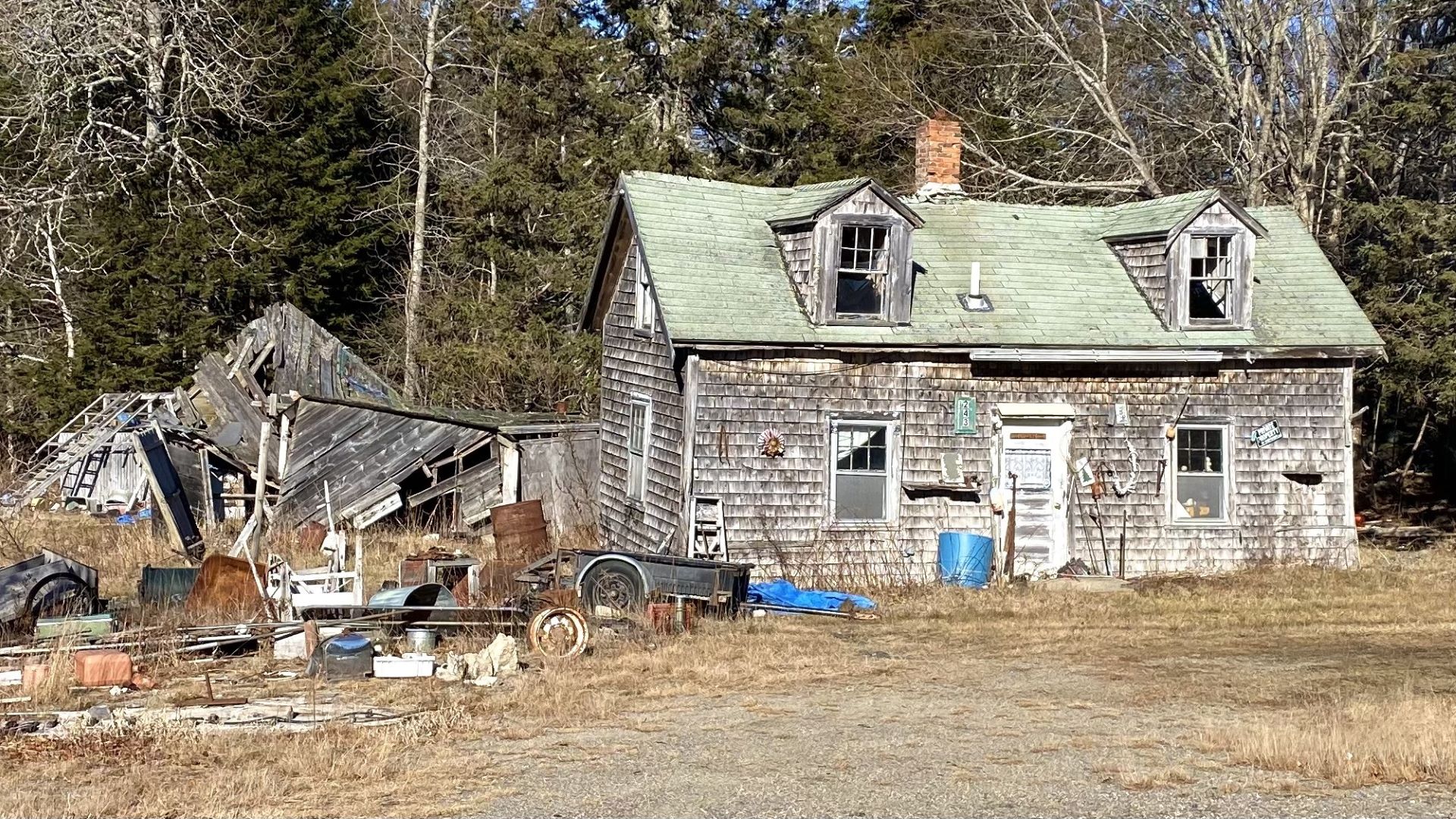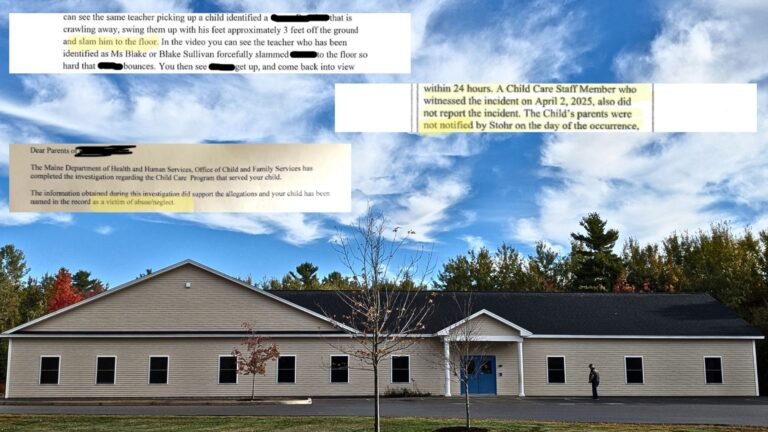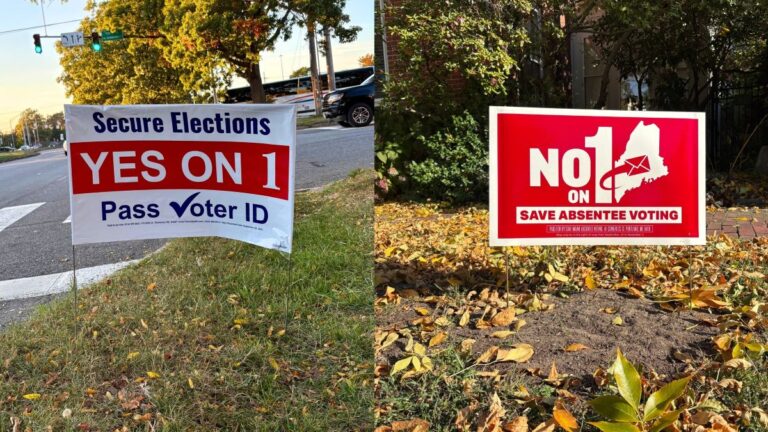When Jennifer Sutherland decided to return to Maine from North Carolina as the laboratory manager at Down East Community Hospital (DECH) in Machias, she did not anticipate the difficulty of finding housing, either to rent or to buy. Fourteen years ago she had worked for the VA facility in Augusta, had been all over Maine and was familiar with Washington County.
“We understood that it was going to be rural,” Sutherland said, and that they might have to commute a bit. She and her spouse have three dogs, and she said, “That in itself put people off.”
But she explained she couldn’t even find a place to rent by herself while she was looking for more permanent housing. “I stayed in a lady’s shed in her backyard for a month while I was looking.” She still couldn’t find anything. A co-worker she knows had the same problem. While he did find a temporary rental, he had to move out once his wife and their small dog arrived. Sutherland noted he did eventually find housing.
With options running out, Sutherland went off-grid to a shed-type shelter on land about 15 minutes from Machias. “There’s a whole group of people here who are living off-grid, homesteading.”
The new living arrangement is debt-free, the sunrises can be stunning and they were lucky with the mildness of the winter, but they use a gym membership to have showers, something most homeowners and renters would consider standard equipment at home. It was a surprise to find at the gym that “there are quite a few who rely on it for showers.”
When the gym is closed for holidays or other reasons, Sutherland and her family stay at a hotel for the duration in order to shower. She says, “Realistically, [the off-grid decision] was a choice that had to be made” if Sutherland was going to stay for her new position at DECH, but it still amazes her that the choice had to be made at all.
Threats to housing identified
GrowSmart Maine CEO Nancy Smith is not surprised by the stories of people wanting to move into Maine for work and then coming up against the lack of housing. The shortage is felt at all levels of income and accessibility, she says. The lack of housing and rentals poses a real threat to a community’s ability to sustain a working-age population, as Sutherland has found.
The first threat to middle-income housing, Smith noted, is the short-term rental market. However, she distinguishes between the owner-occupied short-term rental and the investor-owned rental.
For the latter, “The demand is strong, and there’s no regulation. It’s a real risk.” There are tools that municipalities can use, but Smith recommends a regional approach. She points out that if one town regulates short-term rentals, “the market moves to nearby towns.”
The second threat to stable year-round housing access is the in-migration of people who are looking for permanent homes in a state that has many positive attributes, including that it will not be as affected by climate change as some other states. It’s a mixed blessing, she says.
“They bring expertise, energy and have families.” But because they can often pay higher prices for housing, they have contributed to the squeeze on supply and the rise in prices.
Sutherland points out that the other side of the coin to short-term rentals is a landscape of vacant and deteriorating houses, often owned by long-time Maine families who keep the house for sentimental reasons, or visit occasionally, but with maintenance not on the priority list. When they do sell, the houses aren’t always lived in or fixed up. She could afford a fixer-upper, but the amount of renovation costs makes such an option unrealistic.
“A co-worker has a house next door that was bought two years ago by a couple from out-of-state, and it’s been empty the whole time.” It’s frustrating, she said, to see so many vacant houses when they’re so badly needed for year-round use.
A new take on development
Development has not always been a welcome word in many parts of Maine. Commercial strips took business away from downtowns but are now often shells of their former selves.
Housing developments, upscale or not, have often been built outside of the main part of a city and town, adding to a municipality’s infrastructure burden with the need for additional water and sewer build-out, road plowing and additional maintenance costs.
New legislation, proposed or now in the rule-making process, seeks to define development in new ways, recognizing the need to innovate with what exists in a way to increase housing for middle-income households while protecting land identified as culturally and economically valuable for agriculture, working waterfront, forestry, climate resilience and more.
A number of bills are being considered by the Maine Legislature to help communities find the right paths forward. GrowSmart Maine and Build Maine have created Policy Action 2023 with proposed legislation that would create a cohesive approach to development that strengthens the existing infrastructure and culture of downtowns and villages of all sizes.
“We need more housing where it makes sense long-term,” explained Smith.
Policy Action 2023 has distinct steps and then broader steps for how to address the housing affordability challenge through development. Smith explains, “it’s a starting point” for the legislature.
One bill suggests that a bank of building types, with construction drawings that meet building codes, be created so that municipalities can “hold their own public process to apply these types locally.” Housing costs can be reduced by streamlining the regulatory process.
Another bill would strengthen Maine’s historic rehabilitation tax credit by extending eligibility to homeowners and enhancing credits for small commercial projects. And recognizing that municipalities will need help implementing change, LD 602 would provide regional support to deliver state and federal programs to cities and towns.
Whichever parts of Policy Action 2023 make it into law, they will be obvious partners to LD 2003, signed into law in April 2022. The legislation encompasses a range of recommendations to increase housing opportunities in Maine through zoning and land use changes. The Maine Department of Economic and Community Development (DECD) has created a guide for municipalities and individuals to use in determining how LD 2003 affects local zoning and land use codes.
DECD Legislative Affairs and Communications Spokesperson Victoria Foley explained, “LD 2003 focuses on removing regulatory barriers to increase housing production in Maine, while preserving municipal ability to create land use plans and protect environmental resources. This legislation requires municipalities to create or amend local ordinances to allow for additional density for affordable developments in certain areas; multiple dwelling units on lots designated for housing; and one accessory dwelling unit located on the same lot as a single-family dwelling unit in any area where housing is permitted.”
To move forward on these options, communities will need their comprehensive plans in place. Foley explained, “The Housing Opportunity Program within DECD recommends that a municipality start the LD 2003 compliance process by reviewing its current zoning ordinances and comprehensive plan to see if all, or some, of the provisions of LD 2003 are applicable. A municipality should note where designated growth areas are located — if applicable — water and sewer capabilities, and the current density and dimensional requirements for housing structures. It is also recommended that a municipality reach out to its local regional planning organization, such as Sunrise County Economic Council (SCEC), to assist with comprehensive plan interpretation or ordinance review.”
Of SCEC’s efforts to help municipalities, Assistant Director Jennifer Peters said, “SCEC is in the process of hiring a planner to assist towns with comprehensive planning, ordinance development, community resilience planning, and to help fill other planning needs. There are some other pieces in the works that may require adding one to two positions to the community development team in the near future, but that isn’t yet certain.”
Peters adds, “Helping communities understand about LD 2003 and other avenues of assistance dealing with housing issues is of vital importance.”
“Huge changes are happening,” said Smith. “It’s a very human instinct to resist change because of the fear of what we’re going to lose.” However, she says, “We all need to lean into this if we want small towns to thrive.”
Sutherland couldn’t agree more. “We have people who want to come here and work, but there’s no housing.” When she looks at Machias she sees a place turning into a ghost town.
“It breaks my heart because there’s so much potential.” She pauses. “It’s very complicated. I think the county has so much potential, but there are so many factors to work on.”
Whether she and her spouse will stay is up in the air. “It’s something we wrestle with every day.” She noted that as a medical professional she can work just about anywhere.
What can be done immediately
Smith, of GrowSmart Maine, recommends that people engage at the local level, learn about local rules for development and how they intersect with the protection of farmland, forests and working waterfront. Keep an “eye towards ‘growing in the right places,'” for housing, for food production, climate change impacts and more, she says.
“Encourage regional approaches for both development and conservation. Regional support provided by SCEC is invaluable to towns.”
And finally, she notes the importance of contacting legislators about the importance of addressing the housing affordability crisis.
The Maine Housing Assistance Fund has been relaunched in an effort to help homeowners who meet low and moderate income thresholds with up to $50,000 in maximum benefit per homeowner.
Fueled with $50 million from federal pandemic relief funds, the fund is available to households earning up to 150% of local area median income and who have suffered a financial hardship, loss of income or increased expenses after January 21, 2020, associated with the COVID-19 pandemic.
Homeowners can check eligibility and begin the application process online at MaineHomeownerHelp.org.
Sign up here to receive The Maine Monitor’s free, periodic newsletter, Downeast Monitor, that focuses on Washington County news. This article is republished by The Maine Monitor with permission from the Quoddy Tides.







